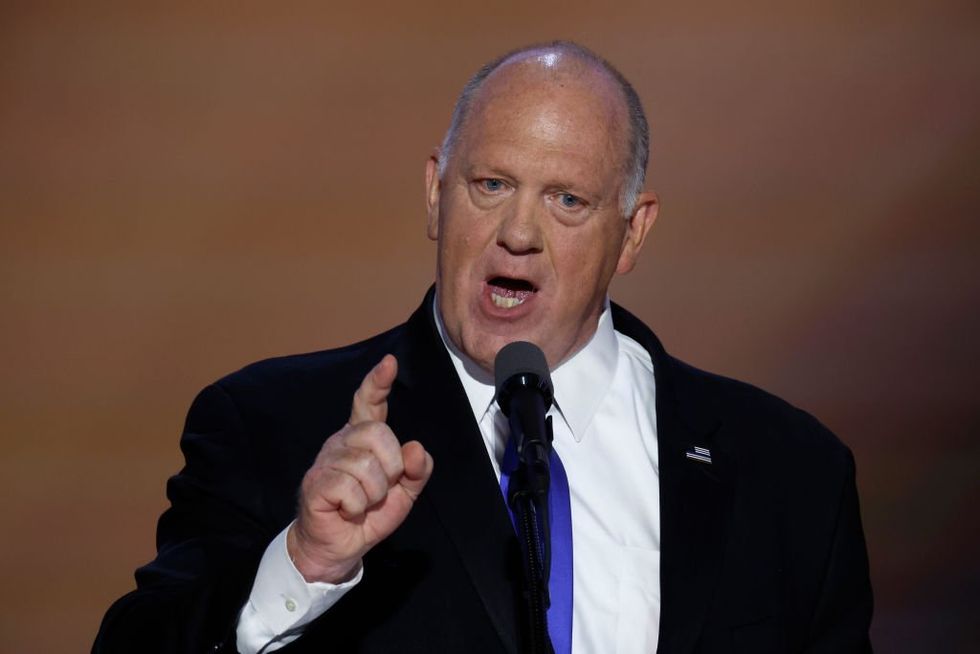Cigarettes, DEI, And Our Military
In the early part of the last century, the popularity of smoking was at its apex with about half of America lighting up. Believe it or not, back then it was not uncommon to find advertisements touting the health benefits of cigarettes. In fact, in 1937, Philip Morris heavily advertised that a study conducted by ...

In the early part of the last century, the popularity of smoking was at its apex with about half of America lighting up. Believe it or not, back then it was not uncommon to find advertisements touting the health benefits of cigarettes. In fact, in 1937, Philip Morris heavily advertised that a study conducted by doctors found that their cigarettes cleared up any and all cases of throat irritation. Just imagine how difficult it would have been to convince an avid smoker back then that this was complete hogwash. Maybe some of you have experienced exactly that difficulty with parents or grandparents who smoked.
We have a similar challenge today, but in a completely different arena. That arena concerns our American culture – a culture that has historically stressed excellence, meritocracy, and equality of opportunity. It is rapidly being replaced with a different ideology known best by the deceptively innocent catch phrase of Diversity, Equity, and Inclusion or DEI.
Those certainly sound like uncontroversial words and concepts, and DEI proponents would have you believe that it is about embracing individual differences, tolerance of people who are different, improving teamwork and output, ensuring equal opportunity, and combatting harmful racial and gender biases. Only a heartless, bigoted, sexist, illogical soul could object to any of that, right?
Regrettably, nothing could be further from the truth. In practice, like touting the health benefits of cigarettes, the words Diversity, Equity, and Inclusion bring with them the opposite of virtually everything they claim to promote.
Sadly, thanks to billions of dollars of marketing — akin to the cigarette smoking in the past — many if not most Americans are blind to the real impact of DEI. To these people, critics sound off base or as though they are merely throwing out random derogatory names when they refer to DEI as Marxist. That is understandable because it is a particularly well camouflaged initiative. Nonetheless, under the guise of fighting racism, and promoting fairness, inclusivity, and productivity, it achieves the same objective of division, resentment, and chaos. But instead of pitting people against each other on the basis of socioeconomic class warfare — the more traditional hallmark of Marxism — DEI does so through race, gender, and sexual identity.
Also, part of why the charge of Marxism may at first sound like hyperbole is because the DEI stuff itself is so whacky and seemingly haphazard that ascribing to it the name of an economic theory seems to give it more purpose and organization than it deserves. After all, what could denouncing all white people as guilty oppressors and putting tampons in men’s rooms possibly have in common? However, those people need to remember, as Christopher Rufo points out in his excellent work “America’s Cultural Revolution,” the first objective of Marxism is revolution, and the key drivers for that are segmentation, demonization, resentment, and chaos. It has been working.
As former Army Captain Kendall Qualls has observed, per Gallup and Southern Economic Journal, in 2003, nearly 70% of black and white Americans rated race relations either good or very good, which was one of the highest ratings in its tracking history. Since then, as the number of DEI officers in America’s institutions has soared, that percentage has plummeted by more than 30 points. From our schools, to the practice of medicine and other sciences, to politics, to the Secret Service, and private sector corporations, DEI has been an unmitigated disaster.
Aside from these institutions there is one other critical organization with a much smaller margin of error in which DEI has been deeply imbedded – our military. If there is one domain in which a country needs meritocracy, excellence, unity, and esprit de corps to reign supreme, it is with its war-fighting effectiveness.
In 2011, the Military Leadership Diversity Commission (MLDC) established a new paradigm. The MLDC’s 162-page Final Report, titled “From Representation to Inclusion: Diversity Leadership for the 21st Century,” shifted priorities away from meritocracy and non-discrimination, moving instead toward “diversity” and “equity” as paramount goals.
The impact has been swift and devastating. Consider just a sampling of what that has helped produce:
- The Heritage Foundation – one of the only comprehensive, non-governmental assessments of our military readiness – for the first time provided an overall rating for 2024 of “weak,” down from “marginal” in 2023.
- The military overall is facing the largest recruiting crisis in over half a century – short by some 41,000 personnel.
- The National Independent Panel on Military Service and Readiness concluded that the human elements of training, discipline, cohesion, confidence, and morale critical to fighting and winning wars are under severe duress due to a prioritization of a political agenda that distracts from the war-fighting mission and diminishes trust in military leadership.
- In all the services today, biological men are allowed to berth and shower with women.
- With some 44% of women failing the Army Combat Fitness Test, the Army has reduced the standards for the test to accommodate more women and older soldiers.
- DoD data show that some 70% of active duty service members are overweight and that obesity rates have doubled in the last ten years.
- The Navy has celebrated “Pride” for 12 consecutive years, and this past year used a drag queen in its recruiting.
- Per the Reagan Institute, in just five years, the percentage of Americans saying they had trust and confidence in our military plummeted from 70% to 45% – the first time ever that a minority of the country expressed a great deal of trust and confidence in the military.
- In 2018, 70% of Americans said they would recommend joining the military to family or friends. Just five years later in 2023, that number had plummeted to 51%.
In collecting feedback from military personnel and their families STARRS recently received this comment from a Marine father: “My son, who wanted to be a Marine his entire youth, left after 5 years, disgusted with the new ‘woke’ Marines.”
Another service member said, “After 20 years of commissioned service, I tell folks all the time – no matter how woke you think the armed forces are, it is much worse.”
Wars happen when aggressive adversaries assess, rightly or wrongly, that their opponent is weak enough to be defeated. How do America’s adversaries assess its military readiness today? Distressingly, it is likely that they see it as far lower than they did a mere decade or so ago.
Senior Fellow at the Hoover Institution, and Stanford Professor and historian Victor Davis Hanson says this of DEI:
“In the end, DEI will implode because of its many contradictions: it is racist to the core; it is illegal and violates court decisions and the Constitution; it destroys meritocracy; and it is utterly incoherent in adjudicating who and who not deserve racial preferences.”
In ancient times, rigorous athletic competition was considered preparation for war and therefore critical to the survival of a society. In fact, Greek law required physical exercise of both men and women. Athletic competition or sport is perhaps the one stage in our current culture that has remained resistant to the DEI scourge. And yet, how ironic that, while Americans are opposed to removing meritocracy from sports – an enterprise that has historically symbolized combat readiness – they have been willing to throw it under the bus in the realm of actual combat readiness, our military.
The pages of history are filled with failed nations and cultures that made fatal errors in estimating and addressing their war-fighting readiness. We are currently on such a path with America’s military. We need to eradicate DEI policies and practices from the institution that stands between totalitarianism, communism, terrorist extremists and our free republic – our military.
* * *
Dr. Greg Salsbury is former president of Western Colorado University, author of the 2006 award winning book “But What If I Live?” which predicted the 2008 meltdown, and the follow up book “Retirementology – Rethinking the American Dream in a New Economy,” which topped Amazon’s “personal finance” category.
The views expressed in this piece are those of the author and do not necessarily represent those of The Daily Wire.
Originally Published at Daily Wire, World Net Daily, or The Blaze
What's Your Reaction?
































































































